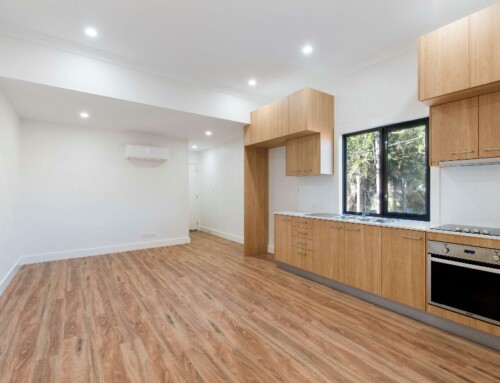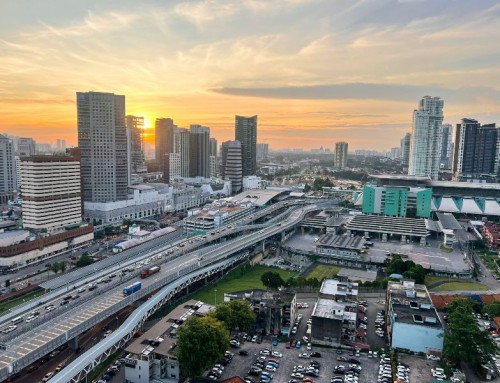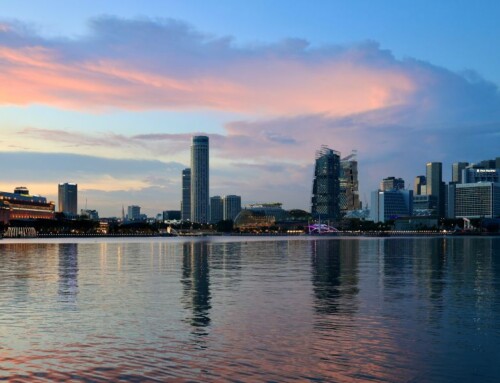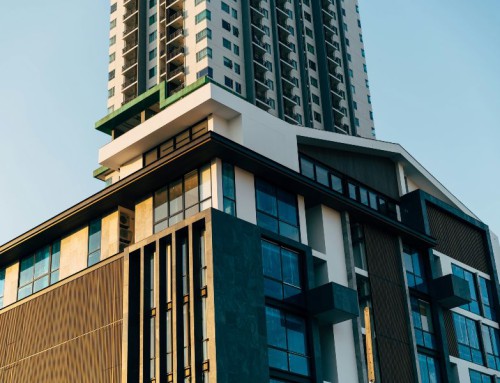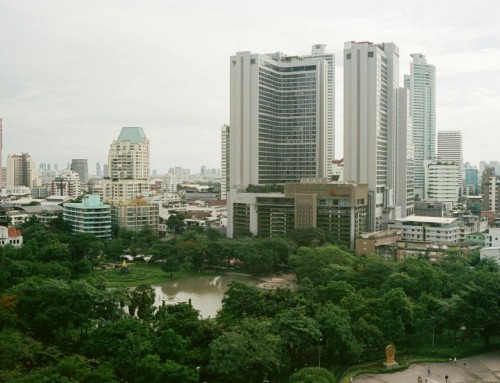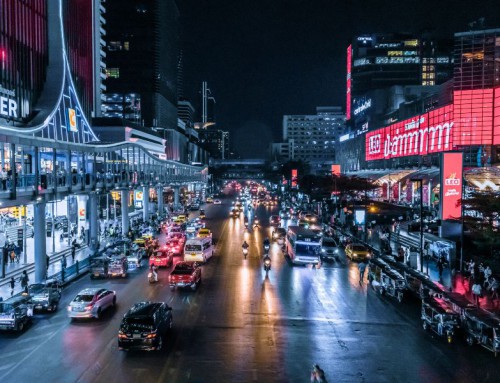One of the most common questions which buyers ask is whether to purchase a condominium or a landed property in Singapore. There isn’t a straightforward answer as requirements differ between buyers. However, you should understand the pros and cons of owning a condominium and a landed property before you can decide which of the two better suits your needs.
Let us first define what a condominium and a landed property are.
A condominium is a type of property whereby specific parts of the real estate are owned by various owners. In this case, the various owners own the airspace within their units. The common areas like the walkways and facilities are co-owned by all the owners in the development. The common area is divided into shares. Each unit in the development has a corresponding share value based on the size or strata area of that particular unit. There are rules governing what can and cannot be done by fellow owners or stakeholders in the development. Annual general meetings (AGMs) are held to resolve matters and decide how the development should be run.
A landed property is one whereby the owner of the property sitting on that plot of land also owns that whole piece of land outright. There are various forms of landed properties namely inter terraces, semi-detached houses, detached houses and good class bungalows. Only Singaporeans can purchase landed properties in Singapore. However, this rule is relaxed for landed properties in Sentosa Island. That is the only place in Singapore whereby foreigners can own landed properties.
Now let us take a look at the pros and cons of living in a condominium
Pros
1) Facilities and amenities
This is perhaps the thing that attracts most condominium buyers. Condominiums come with facilities like swimming pools, gym, playgrounds, BBQ pits and tennis courts. If you are a sports enthusiast, there are condominiums with unique facilities like rock climbing walls and badminton courts. Some condominiums like Gem Residences have concierge service and pet pools. These days there are even dining halls with a fully stocked kitchen for you to do your cooking and host your guests.
2) Location
You can buy condominiums close to an MRT station. These are perhaps the type of condominiums which you should consider, especially if you are buying to rent it out. Land around the MRT station is extremely valuable. The government does hold most of these plots of land and usually releases it for sale through government land sales. Even though the condominiums around MRT stations are usually 99-year leasehold developments, demand for these properties is extremely high.
3) Convenience
Some condominiums are part of a mixed development. There are retail shops within the development. Also, condominiums are usually located close to public housing estates and thus are close to amenities such as supermarkets, clinics and coffee shops.
4) Hassle-free maintenance
Maintaining the facade of the building is the responsibility of the management. As a condominium owner, the upkeep of the development is not your responsibility.
5) Security
Condominiums are guarded and gated communities. There is usually a security guard post at the front of the development. Unauthorised people are not allowed into the compound.
6) Cost
For the same location, a condominium is usually cheaper than a landed property. For example, a 3 bedroom condominium around Hougang would cost about SGD$1 million. Correspondingly, a 2 storey landed property with 3 bedrooms may cost about twice the price. Condominiums are a more affordable upgrade for HDB dwellers and most families take this route.
Cons
1) Extra fees
Maintenance and sinking fund may amount to a couple of hundreds of dollars. The average maintenance fee for a 3 bedroom mass market condominium comes up to about $1000 or more every quarter. While this may seem like a decent price to pay for the upkeep of the common facilities, if you are living in a landed property and there are not many repairs to be made, your maintenance of the landed property would not amount to $5000 per annum.
2) Noise and privacy
In a condominium, you are living in close proximity to your neighbours. Noisy neighbours are sometimes inevitable. If one unit in your block is going through renovation, you can be assured that you will be able to hear drilling and knocking.
3) Higher supply
In land scarce Singapore, as of 4th quarter 2017, there are only about 72,761 landed units. In contrast, there are about 291,534 non-landed private residential properties. There are about 4 times more condominiums as there are landed properties. This disparity will only get bigger as more condominiums are being built.
4) Need to adhere to the condominiums rules and regulations
Even though you own your unit in a condominium, you cannot make alterations like changing the colour of your windows or adding an additional room by installing partitions. You cannot decide to install a trellis if your unit has a patio or a sky garden. Any modifications to your unit that might affect the external facade of the building has to go through the approval of the management of the condominium.
Next, let us look at the pros and cons of living in a landed property
Pros
1) Pay for what you need
Everything is maintained by the landed property owner and thus you will only pay what you really need. If you would like to have landscaping in your compound, you only need to pay for that service with a landscaping company. There are many condominium owners who do not use the facilities even though they are paying monthly maintenance. In a landed property there is no fixed monthly maintenance fee.
2) Very exclusive and private
If you are someone who likes exclusivity, then living in a landed property is perhaps for you. There is no unit above or below you. The closest you can get is if you purchase an inter terrace and your neighbours and you share a common wall. Landed properties are also usually further away from dense residential built ups. If you desire to live in a low-density area, a landed property is just the place for you.
3) Limited supply
This point was previously mentioned. The supply of landed properties is going to get lower as time goes by. Currently, the only new supply of landed properties is either through subdivision of large plots of land or if the government were to release land zoned for landed properties. Even so, government released land are 99-year leasehold. Thus a freehold landed property is going to be more valuable as time goes by.
4) You are free to do what you want
If you want to make modifications to your property you are free to do so so long as you adhere to URA guidelines. You can also change the colour of your facade, install a lift or a swimming pool without having to seek permission of a management.
Cons
1) No facilities
There is no tennis court, swimming pool, gym or playground in a landed property. Although some landed property owners may install a lap pool or have a personal home gym. You will need to get an external gym or country club membership to enjoy such facilities.
2) Location
Landed properties are located away from town centres and are usually some distance away from the nearest bus stop or MRT station. If you have children or members of the household who do not drive, they may need to walk some distance to get to the main road with transportation.
3) You have to maintain the property by yourself
If your roof leaks or if your auto gate is faulty, that is your responsibility as a landed property owner. As the property ages, you will need to do basic maintenance like repainting the property or waterproofing problem spots.
4) Security
If you are a person who is concerned about security, then a landed property may not be right for you. Strangers are free to walk past your house. There is no security guard post to screen your visitors and since a landed property is rather large, you will need to ensure that everything is locked up property everytime you leave the house.
5) Cost of buying a landed property is expensive
Perhaps the most prohibiting factor for most people is the cost of purchasing a landed property. Landed properties, in general, are expensive. More so if they are newly constructed and sitting on freehold land. Such properties can cost millions of dollars and this is why only 5.6% of Singaporeans live in landed properties.
6) Poor rental yield
If you are looking for yield, then a landed property is not the type of property for you. Due to the high prices and low rental, their yields are extremely low. This makes for a bad investment yield wise. Moreover, it is difficult to find a good tenant if your landed property is not a well-kept property.
7) Can only be bought by Singaporeans
Unlike a condominium, landed properties can only be sold to Singaporeans. Foreigners and Permanent Residents are not allowed to purchase landed properties in Singapore with the exception of landed properties in Sentosa Cove. If you are looking to sell your landed property, this would mean that the pool of potential buyers for a landed property would be smaller than a condominium.
In my personal opinion, a landed property has the best potential for price appreciation. If I had to choose, I would definitely pick owning a landed property over a condominium. Most property owners do aspire to eventually be able to own a landed property of their own. In fact, you have to be financially well off to purchase a landed property in today’s market. The fact that the supply of new landed properties is limited makes it even more valuable. Especially if it is a freehold landed property.
Yours Sincerely,
My other related articles
Factors that determine the price of a landed property in Singapore
Guide to landed property in Singapore
Buying a Landed Property and Rebuilding it. A Personal Experience.

